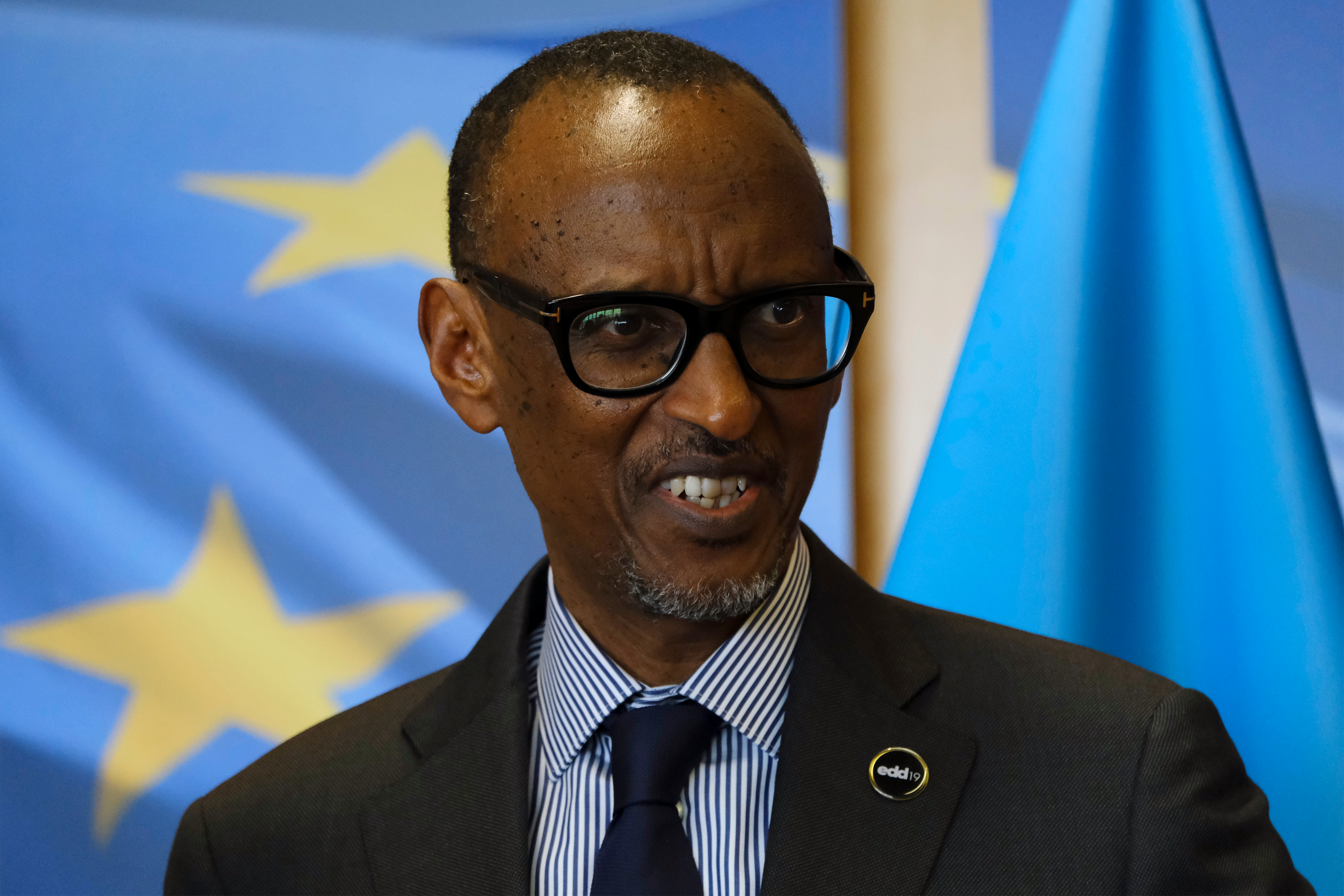Rwanda
Rwanda’s digital free speech comes under siege

Brussels, Belgium. 18th June 2019. President of Rwanda Paul Kagame is welcomed by the European Commission President Jean-Claude Juncker during a visit at the European Commission.
©Shutterstock
As Rwanda’s President Paul Kagame tightens his grip on power, freedom for many who have switched to digital media to find a footing for their voices has come under siege from the country’s regime. Rwanda’s YouTube bloggers and commentators have of late found themselves in trouble for using the platform to point out perceived negative government reports. It has been reported that more than 20 bloggers and YouTubers in Rwanda were detained or disappeared in 2020 alone. In 2021, Kagame’s regime escalated the repression of his digital foes that are using social media platforms like YouTube to criticise his rule. This follows the already intense censorship on radio and print media. The siege on free speech on YouTube in Rwanda deepens as the country approaches the much anticipated 2024 presidential elections in which the country’s President, Paul Kagame has gone on record in the media saying it is possible that he will not contest.
Kagame won a third term in 2017 after amending an article of the country’s Constitution that barred him from standing for re-election. Rwandese reporters have wasted no time in splashing such news on YouTube, subsequently turning journalists into enemies of the State, resulting in them getting arrested. Rwandese journalists get held at Nyarugenge prison. At this jail, several anti-government critics who had switched to YouTube to voice their concerns, await trial or are already serving their time. Journalist Théoneste Nsengimana, bloggers Dieudonné Niyonsenga, Yvonne Idamange and Théoneste Nsengimana, academic Aimable Karasira are amongst popular YouTube bloggers who have been on the receiving end. As the crackdown on scribes on YouTube widens in Rwanda, journalists switching to YouTube have also been targeted for prosecution for not registering with the Rwanda Media Commission (RMC).
Since October 2021, at least eight members of the opposition Dalfa Umurinzi have been arrested and charged with offences, including spreading rumours and forming a criminal association, in relation to a book they acquired and an online training session they attended to learn strategies for peaceful dissent. Amidst the crackdown of Rwanda’s YouTubers, Kagame has not hidden his pleasure for the arrests, in 2019 warning those using online platforms in his country. “Those that you hear speak on the internet, whether they are in America, in South Africa, or in France, they think they are far. They are far, but they are close to the fire. The day they get closer, the fire will burn them,” said Kagame. Consequently, owner of a YouTube channel dubbed Channel Pax TV, has expressed pessimism about the future of YouTube in Rwanda. "We are leaning towards the closure of YouTube channels, not by shutting down YouTube or the internet, but by imprisoning those who work on YouTube," Rwandan journalist John Williams Ntwali to APF in a recent interview.
The article is written by freelance journalist Jeffrey Moyo on behalf of the Friedrich Naumann Foundation for Freedom in sub-Saharan Africa.
